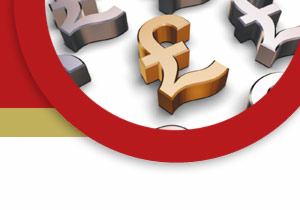 There are many questions that you are assuredly going to be confronted with when applying for a credit card. These questions are important to answer, and answer honestly because of the credit card companies need for accurate information. The information that you provide will help them to determine what credit card is right for you and what financial offerings they can provide you through their institution. Lying about this information is not only problematic but also fraudulent. Whether you are applying for credit through a large institution, such as would be the case if you were applying for a Lloyds TSB or Barclays credit card for example, or are just looking for more data for a future application, the following is some of the common information that you will most likely be asked during this process.
There are many questions that you are assuredly going to be confronted with when applying for a credit card. These questions are important to answer, and answer honestly because of the credit card companies need for accurate information. The information that you provide will help them to determine what credit card is right for you and what financial offerings they can provide you through their institution. Lying about this information is not only problematic but also fraudulent. Whether you are applying for credit through a large institution, such as would be the case if you were applying for a Lloyds TSB or Barclays credit card for example, or are just looking for more data for a future application, the following is some of the common information that you will most likely be asked during this process.
Income
Though personal, a credit card will assuredly be asking you what your income level is. They will want to know what your annual take home is and may want to know what the monthly is as well. This information is important to a credit card company for many different reasons. First, it will help to determine how much financing and credit they can provide you with. They do not want you to be at risk of being unable to pay so knowing how much disposable income you have can allow them to provide you with an appropriate amount of financing. They will also want to know what income bracket you fall within to better help determine the type of credit card that is right for you. An individual with a high level of income may be eligible for a bonus or rewards card, while those with less monthly income or annual revenue may not. This serves as a protection to both the credit account holder and the lending institution.
History
Before issuing a line of credit to an individual, the financial history of that individual will be assessed. This is done by doing a credit report. The individual applying will have to provide information on application that agrees to this assessment. If not, they may not be able to move forward in the application process. A bank or credit card company wants to know that their risks are worth it. If an individual does not have an established credit history or has one that is highly flawed, this can reduce the chances of them issuing a card. If the individual has a stellar report, they may be more inclined to accept the application and even to increase the amount of credit that is issued. Either way, it will be unlikely when applying for a credit card that you will be able to move forward without answering questions regarding your credit history.
Employment
Another way in which a bank or financial institution will seek information on an application for a credit card is to ask for your employment history. This is important because it shows whether an applicant has a consistent source of annual income as well as how stable their career is. This section may or may not be included on the main application, but you should be prepared to answer it just in case.
Laura was getting ready to apply for a Lloyds TSB credit card. To prepare, she wanted to gather all the information that she may have needed before beginning the process. Then she created the above list to help others.
 Let’s look at what options there are in the financial world and that will give you the foundation to leap from when asking yourself; “What finance Option is right for me?”
Let’s look at what options there are in the financial world and that will give you the foundation to leap from when asking yourself; “What finance Option is right for me?”
Secured V’s Unsecured
When a loan is secured, it means that you are putting up a piece of property against the value of the loan. This means that should you fail to pay back this loan, the lender is entitled to claim that property as their own in forfeit or enforce the owner to sell the property and surrender the proceeds of the sale. A mortgage is the best known example of a secured loan type; second loans taken against the value of a home are often home improvement loans used to build extensions, modernise or renovate the property. Credit history affects your ability to acquire a Secured Loan.
An unsecured loan, often known as a personal loan, will often be for a much lower amount of money and the interest rate will be higher. It will also be paid off quicker and often with no penalties for early settlement, allowing the borrower to accrue little interest with astute financial management. No property is secured against the value of the loan so failure to pay will be pursued in the courts and through debt collection agencies. The red tape associated with this gives the borrower ample time to negotiate a method of payment to suit both parties. The amount of the loan and the payment plan is calculated on a current ability to pay back what is owed, projected income and expenditures; credit history is rarely important.
Guarantor Loans
A guarantor loan is a type of unsecured loan where a third party agrees to pay off part or all of the balance if the person taking out the loan is unable to meet the debt. They are also repayable over a shorter period of time and for similar amounts of money and interest rates as the unsecured loans above. They are particularly suitable for those with a poor credit history or none at all and therefore suitable for young people purchasing their first car for example. It is important that the guarantor has a good credit history, home owners are preferred and their ability to pay is just as important as the person taking out the loan. Failure to pay means that the guarantor becomes legally responsible for the debt.
Payday Loans
A very recent phenomenon, payday loans are designed to help in the very short term. If you are still a few days away from getting your wages but are in critical need of money and fast, the payday loan may suit you. Unsecured loans that are supposed to be paid back within days, they can help get you out of immediate difficulty but should not be used for long-term borrowing. As well as the above mentioned loans, as they are unsecured the legal implications for failure to pay are not as severe and credit history is not important, only the current ability to pay it back within the specified time. They can also be useful for the borrower in helping them to build a credit history and encourage good financial practice.
Now Your Interest is Perked
It is very important to understand that the types of loans discussed above will come with a wide range of interest rates. Ensure that you are taking out the right loan for you depending on your personal circumstances and what you are borrowing the money for. A payday loan for example will come with a jaw dropping high rate of interest because they are designed to be paid back within days; they are not a long term solution to financial need. Secured and unsecured loans are taken out over increasingly longer terms, usually counted in months with secured loans being the longest. Mortgages are the longest terms loans and counted in tens of years. With secured loans, the amount of money loaned is usually higher than an unsecured loan and often with a lower rate of interest. When considering taking out a loan of any kind, do take length of time and interest rates into consideration.
Stuart Edge went to university and like many others finished with considerable debts. Therefore he explored the idea of applying for loans to help him to pay it off quickly.
Tags: cash flow, credit card, economy, expenses, financial management, money, planning, savings
 Budgeting, Financial Planning, Money, Personal Finance
Budgeting, Financial Planning, Money, Personal Finance
 There are many questions that you are assuredly going to be confronted with when applying for a credit card. These questions are important to answer, and answer honestly because of the credit card companies need for accurate information. The information that you provide will help them to determine what credit card is right for you and what financial offerings they can provide you through their institution. Lying about this information is not only problematic but also fraudulent. Whether you are applying for credit through a large institution, such as would be the case if you were applying for a Lloyds TSB or Barclays credit card for example, or are just looking for more data for a future application, the following is some of the common information that you will most likely be asked during this process.
There are many questions that you are assuredly going to be confronted with when applying for a credit card. These questions are important to answer, and answer honestly because of the credit card companies need for accurate information. The information that you provide will help them to determine what credit card is right for you and what financial offerings they can provide you through their institution. Lying about this information is not only problematic but also fraudulent. Whether you are applying for credit through a large institution, such as would be the case if you were applying for a Lloyds TSB or Barclays credit card for example, or are just looking for more data for a future application, the following is some of the common information that you will most likely be asked during this process.












